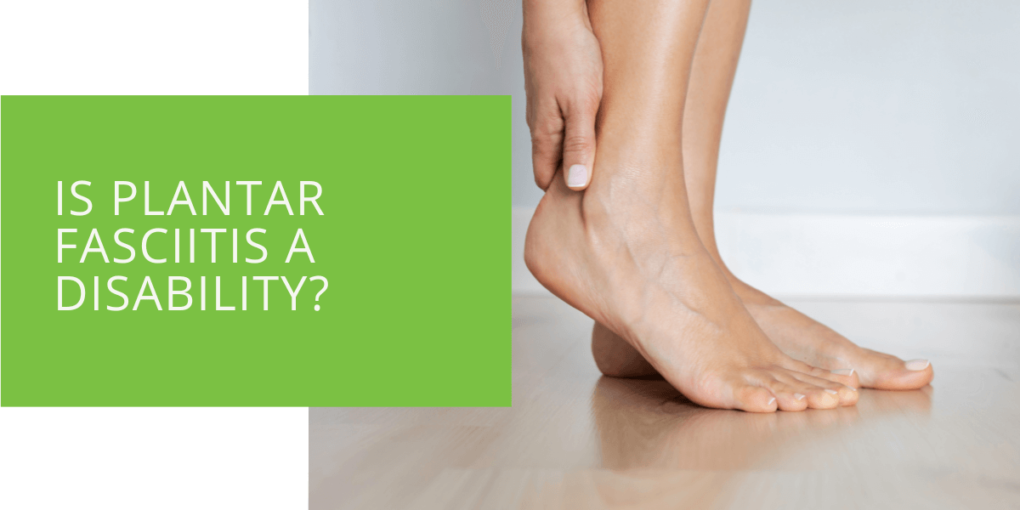Is Plantar Fasciitis a Disability?
Plantar fasciitis is a common and often painful condition that affects the feet, specifically the tissue that runs along the bottom of the foot. If you're experiencing chronic heel pain and discomfort, you may wonder if plantar fasciitis is a disability. This article will explore the definition of disability, the criteria for evaluating disability status, and how plantar fasciitis fits into the equation. We'll also provide information on treatment options for those suffering from this condition.
What is Plantar Fasciitis?
Plantar fasciitis is a condition that affects the tissue known as the plantar fascia, which runs along the bottom of the foot. This tissue supports the foot arch and helps distribute your body weight as you walk or run. When the plantar fascia becomes strained or inflamed, it can cause pain and discomfort in the heel and arch of the foot.
Symptoms of Plantar Fasciitis
The most common symptom of plantar fasciitis is a pain in the heel and arch of the foot, particularly when you first get out of bed in the morning or after periods of inactivity. The pain may also be worse after standing or walking for long periods. Other symptoms may include swelling in the foot, difficulty flexing the foot, and a burning or stabbing sensation in the heel.
Causes of Plantar Fasciitis
Several factors can contribute to the development of plantar fasciitis. Some of the most common causes include:
- Overuse or overloading of the foot muscles and tissue, such as from running or standing for long periods
- Wearing shoes with poor arch support or cushioning
- Being overweight or obese
- Having high arches or flat feet
- Having tight calf muscles or Achilles tendons
- Suffering from conditions such as rheumatoid arthritis or diabetes

What is a Disability?
Definition of Disability
A disability is a physical or mental impairment substantially limiting one or more major life activities. This can include walking, seeing, hearing, speaking, breathing, working, and caring for oneself.
Types of Disabilities
There are many different types of disabilities, including:
- Physical disabilities, which affect the body or mobility
- Mental or cognitive disabilities which affect the mind or cognitive function
- Sensory disabilities, which affect the senses such as hearing or vision
- Developmental disabilities, are conditions that are present from birth or early childhood and affect development
- Chronic health conditions, are ongoing medical conditions that can limit a person's ability to function
Can Plantar Fasciitis Qualify as a Disability?
Evaluating Disability Status
Whether or not a condition such as plantar fasciitis is considered a disability depends on the individual's specific circumstances. In order to qualify as a disability, the condition must substantially limit one or more major life activities. This means that the condition must significantly impact the person's ability to function in their daily life.
To determine whether or not a condition is a disability, the following factors are typically considered:
- The nature and severity of the condition
- How long is the condition expected to last
- The extent to which the condition limits major life activities
- The extent to which the condition can be controlled or treated

Plantar Fasciitis and the Americans with Disabilities Act
The Americans with Disabilities Act (ADA) is a federal law that prohibits discrimination against individuals with disabilities in the workplace and public accommodations. Under the ADA, a disability is a physical or mental impairment substantially limiting one or more major life activities.
Whether plantar fasciitis qualifies as a disability under the ADA will depend on the individual circumstances of the person experiencing the condition. In some cases, plantar fasciitis may be severe enough to qualify as a disability under the ADA. For example, if the condition significantly limits the person's ability to walk or stand for extended periods, it may be considered a disability.
However, in many cases, plantar fasciitis may not be severe enough to qualify as a disability under the ADA. It's important to note that the ADA protects individuals with disabilities from discrimination, not providing a comprehensive list of all conditions considered disabilities.
Conclusion
Plantar fasciitis can be a painful and debilitating condition, but whether it is considered a disability will depend on the individual circumstances of the person experiencing it. To qualify as a disability, the condition must significantly impact the person's ability to function in their daily life. While plantar fasciitis may not always qualify as a disability under the ADA, it can still significantly affect a person's quality of life.
If you're experiencing pain and discomfort from plantar fasciitis, it's important to seek treatment to help manage your symptoms. Non-surgical treatment options, such as rest, stretching, ice therapy, orthotic inserts, and physical therapy, can often relieve pain and improve function. In more severe cases, surgical options may be necessary. A podiatrist can help determine the best treatment for your specific needs.
It's also important to take steps to prevent the development or worsening of plantar fasciitis. This may include wearing shoes with good arch support and cushioning, maintaining a healthy weight, and stretching regularly to improve the flexibility and strength of the muscles in your feet and lower legs. Taking these steps can help reduce your risk of developing plantar fasciitis and improve your overall foot health.

